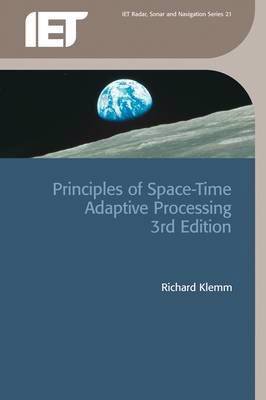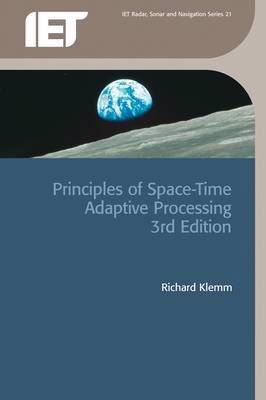
- Afhalen na 1 uur in een winkel met voorraad
- Gratis thuislevering in België vanaf € 30
- Ruim aanbod met 7 miljoen producten
- Afhalen na 1 uur in een winkel met voorraad
- Gratis thuislevering in België vanaf € 30
- Ruim aanbod met 7 miljoen producten
Omschrijving
This third edition of Principles of Space-Time Adaptive Processing provides a detailed introduction to the fundamentals of space-time adaptive processing, with emphasis on clutter suppression in airborne or spacebased phased array radar, covering specifically the principles of airborne or spacebased MTI radar for detection of slow moving targets for use in the fields of earth observation, surveillance and reconnaissance, with special attention paid to clutter rejection techniques.
The book includes topics such as signal processing, clutter models, array processing, bandwidth effects, non-linear antenna arrays, anti-jamming techniques, adaptive monopulse, bistatic radar configurations, SAR and ISAR, and sonar.
After the success of the first and second editions, this third edition has been extensively updated and extended to reflect the numerous advances in the field. A completely new chapter has been added on the impact of the radar range equation, which is of particular importance for radar system designers. This edition concludes with an updated list of more than 750 references on STAP and related topics, representing the worldwide state of-the-art research in space-time adaptive processing.
The book will be of particular interest to electronic and aerospace engineers, university lecturers, postgraduate students, research scientists, radar system engineers and managers working in civilian and military airborne and spacebased radar, as well as potential users of air- and spaceborne radar.
Specificaties
Betrokkenen
- Auteur(s):
- Uitgeverij:
Inhoud
- Aantal bladzijden:
- 672
- Taal:
- Engels
- Reeks:
- Reeksnummer:
- nr. 21
Eigenschappen
- Productcode (EAN):
- 9780863415661
- Verschijningsdatum:
- 28/11/2006
- Uitvoering:
- Hardcover
- Formaat:
- Genaaid
- Afmetingen:
- 156 mm x 234 mm
- Gewicht:
- 1111 g

Alleen bij Standaard Boekhandel
Beoordelingen
We publiceren alleen reviews die voldoen aan de voorwaarden voor reviews. Bekijk onze voorwaarden voor reviews.











